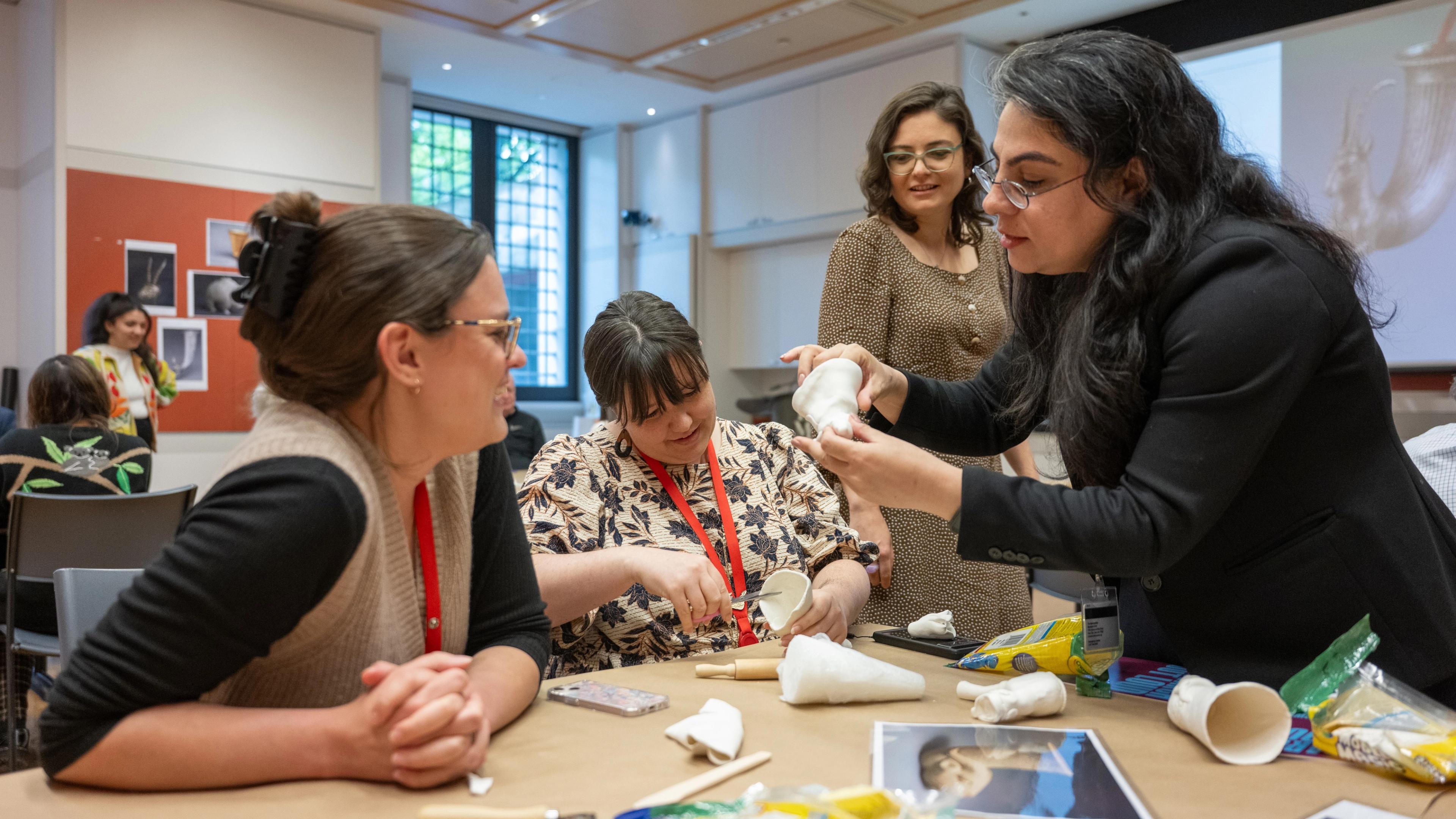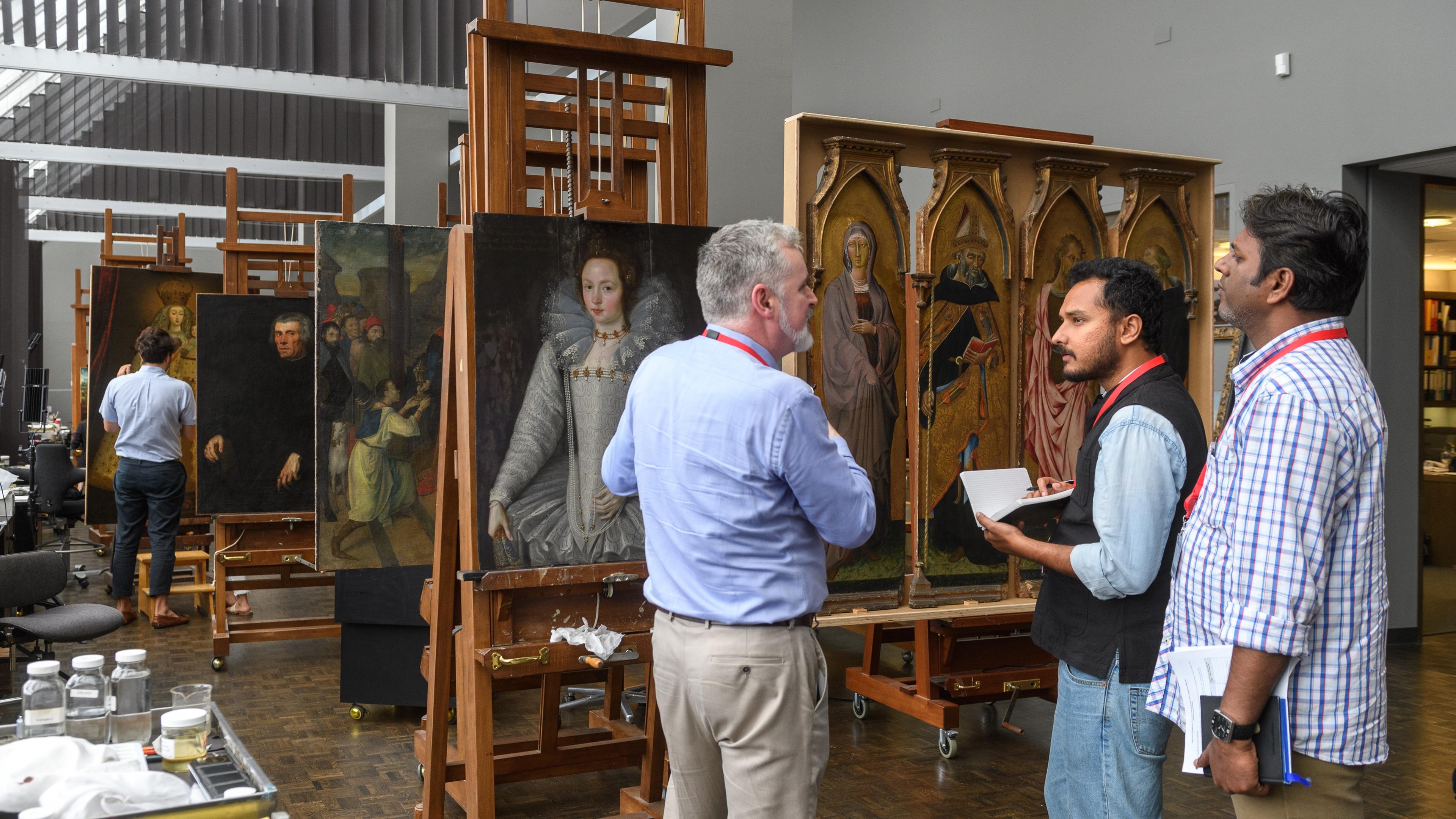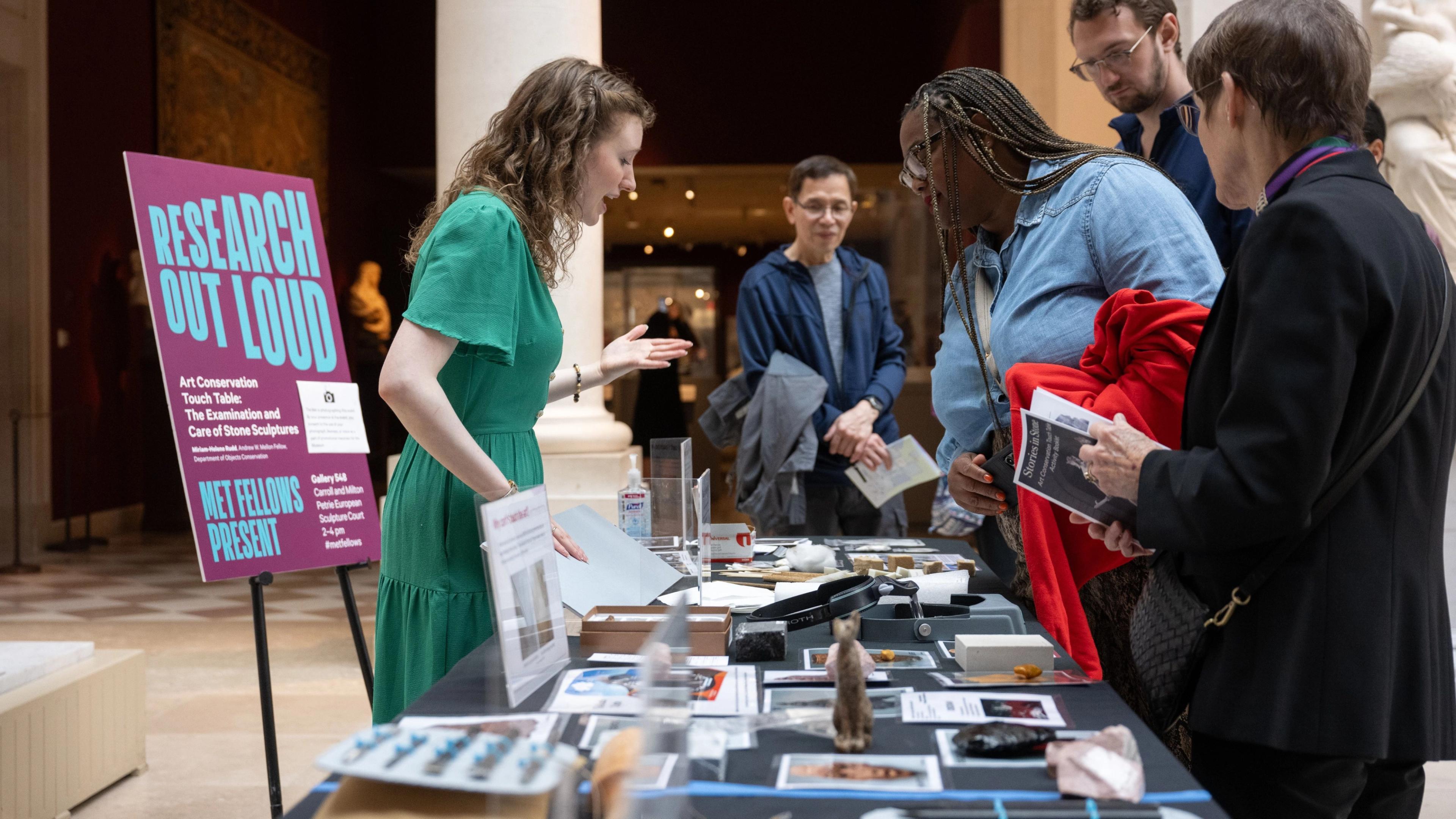Theodore Rousseau Fellowship
About the Fellowship
The Theodore Rousseau Fellowship supports scholars whose projects require travel for close study of painting collections in Europe. This is the only fellowship that does not require residency at The Met. The structure of the fellowship encourages broad connections with European institutions, allowing fellows to engage with works of art, archives, and scholarly communities beyond The Met.
Applicants should propose a specific, independent research project that relates to The Met collection, while pursuing complementary research in European paintings collections. Their research need not be entirely focused on European art; however, it should deeply engage with collections of paintings in Europe.
Although the fellowship is off site, the fellow is assigned a Met supervisor who provides guidance and mentorship throughout the fellowship. The fellow may elect to visit or spend a limited amount of time at The Met during the fellowship period if they choose.
- PhD candidates through senior postdoctoral scholars are eligible to apply.
- Junior fellowships are awarded to those applicants who are working on their PhD on the application deadline date.
- Senior fellowships are awarded to those who hold a PhD on the application deadline date and/or are well-established scholars. Applicants who receive their PhD after the application deadline date are not eligible to move into the senior category.
- All fellows are expected to have valid US work authorization for the entire duration of the fellowship. If you are not a US citizen or permanent resident, please review the additional details on the FAQ page, and ensure you have confirmed your eligibility prior to submitting your application.
The number of fellowships awarded depends on funds and resources available.
- Stipend
- Junior fellows receive a stipend of $47,000
- Senior fellows receive a stipend of $57,000.
- Travel: Both junior and senior fellows also receive an additional $6,000 for research travel (maximum of six weeks).
- Health Insurance: Fellows also receive an additional monthly payment to offset the cost of health insurance.
Application deadline: Friday, October 17, 2025, 5 pm ET
Notification date: All applicants will be notified by the last Friday in February following the application deadline.
Fellowship period: September 1, 2026 through August 31, 2027
All applications, including letters of recommendation, must be submitted online and in English. The Met will not accept applications or related materials via email, postal mail, or in person.
Theodore Rousseau applicants must submit the following materials:
- A statement of interest, not to exceed 1,000 words, specifying why The Met is uniquely suited to your fellowship objectives, what you wish to accomplish during the fellowship period, and which collections in Europe you plan to utilize during the fellowship period.
- A brief schedule of work to be accomplished during the fellowship period (separate from the statement of interest). If you are a postdoctoral fellow, please specify if you are applying for a term less than one year in length.
- A brief schedule of travel required during the fellowship period
- A curriculum vitae of education, professional experience, honors, awards, and publications
- Three letters of recommendation. Applicants must submit at least one academic and one professional letter of recommendation. All letters must be submitted in English and uploaded directly by the recommenders. Recommenders may not be current Met staff, contractors, or volunteers.
- Official transcripts (undergraduate and graduate)—for predoctoral (junior) fellowship applicants only
If you have not yet completed your PhD, you must upload a copy of your undergraduate transcript and graduate transcript. If you have transcripts from more than one institution for either category (undergraduate or graduate), please upload them as one combined file.
What to Expect After Applying
Once submitted, staff in relevant department(s) first review your application to assess the quality and feasibility of your proposed project. If your proposal meets the necessary criteria, the department(s) recommend it for review by The Met’s Grants Committee, which consists of members of The Met’s professional staff appointed by the Museum’s Director and Chief Executive Officer.
The committee reviews all aspects of each application submitted using the evaluation rubric (see below): the quality of the proposal; its significance to the field; its relevance to The Met collection; and the strength of the recommendation letters. Following this assessment, the Grants Committee submits final award recommendations to the Director and CEO.
Please note that due to the lengthy and multiperspective review process, we are unable to provide individual feedback on applications that are not selected.
Selection Criteria
Applications are evaluated based on the criteria set forth in The Met’s evaluation rubric. Reviewers consider all your application materials: your personal statement/project proposal, CV, transcripts, and letters of recommendation. They use the rubric to score your application, but this serves only as a guide. There is no cut-off score for progressing in the review process or being awarded a fellowship. View the evaluation rubric. (PDF)
Life As A Met Fellow

Research Support, Community, and Professional Development
Fellows receive financial support, time for research, exposure to museum work, and access to The Met collection and libraries. Weekly programs and workshops bring fellows together with Met staff to share ideas, develop professional skills, and discuss current issues in museum practice.

Departmental Placement
Fellows are embedded in a curatorial, conservation, audience engagement, or scientific research department with a dedicated Met staff supervisor. Browse curatorial and conservation departments. The Education, Digital, Live Arts, and Archives departments also host Interdisciplinary Fellows.

Research Out Loud: Met Fellows Present
Research Out Loud: Met Fellows Present connects the fellows with the public through a series of gallery programs and research presentations that offer cross-cultural and transhistorical connections throughout The Met collection.